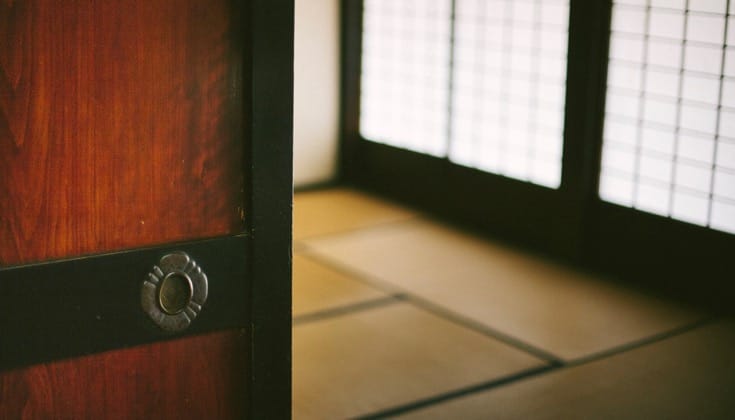Like so many women, I found myself hashtagging #MeToo during October’s viral social media campaign. I wish also that I could go back and be an older, wiser sister to my 22-year-old self. But in lieu of that, I offer these suggestions to women (and people of all genders) who find themselves in a secret sexual relationship with their Buddhist teacher. You are out there; I know you are.
- Don’t isolate yourself. Whether you believe the relationship is beneficial to you or not, tell someone what you are experiencing. While it might sound scary and really hard to do, you will be better off with friendship and support. Find someone you trust, who you know to be a deep listener, and confide in them. It does not mean you are ending the relationship, but no one should ever have to go through this alone.
- Don’t panic if you tell the wrong person. Sometimes the first person we confide in is not the right person. You will know that if they do not listen deeply to your experience. You will know if you sense a lack of empathy or if they try to tell you how you should feel. You will know that if they betray your trust and tell someone else without your permission. If you tell the wrong person, take a deep breath and reach out to someone else, taking into account what you have learned. It might be someone you don’t yet know, such as a therapist. Do not give up on finding an ally.
- If your teacher has implied or told you directly that you should keep your relationship a secret, the answer (and I know you have the question) is: no, secrecy is not a good sign. Like you, I was once in a relationship with my dharma teacher. He swore me to secrecy, something that made me deeply uncomfortable. I assumed he must know what was best for me and that I had to listen to him. I rationalized. If you are rationalizing secrecy, here’s a reality check: rationalization is a strategy when you sense that something is wrong. On some level, you probably know his insistence on secrecy is a sign that the teacher is not strong enough to be truthful with himself or others. Don’t become a victim because of your teacher’s shadow. If he says, “You can tell people, it’s okay. But the sangha and I will suffer if you do,” that is the same thing.
- Secrecy has functions. Perpetrators wield secrecy as a way of isolating and controlling their victims. Being sworn to secrecy means having no close friends, a situation that no person should ever be in, under any conditions. But this is exactly as your teacher intends. As long as there is secrecy, your teacher can avoid the public gaze and therefore avoid accountability.
Secrecy is also a sign, among other things, that your teacher does not prioritize the relationship. If he did, everyone would know; he would be telling the world. But he knows that if he prioritized you, the relationship would become negotiable, and his control would be compromised. He would have to honor your full personhood and actually invite you into his life. - Negotiation is a healthy dynamic in a relationship. Do you negotiate every aspect of your relationship, including domestic arrangements, future plans, your respective aspirations? Does he care how you feel about the secrecy? Does he ask you about what you need and want from the relationship? If the answer to these questions is “No,” then this is a problem. Non-negotiability in an intimate relationship is a hallmark of abuse. You might tell yourself, “But my practice is not to have needs”; “I am here to serve”; or “My practice is to suppress my egoic desires.” Ask yourself, is that your teacher’s practice as well?
- Silence hurts your teacher. I long believed that by being discreet, I was expressing gratitude to my teacher. I now know, beyond a shadow of a doubt, that speaking up does not ultimately harm the teacher. Rather, silence, secrecy, and passivity harm him, and the community as well. The teacher himself is also a victim of structures of power, isolation, and the shadow. He too is at risk. This is probably not the first time this teacher has offended, nor will it likely be the last. If the pattern is not disrupted — if he is not given the opportunity to reconsider the appropriateness of his actions — it will likely continue with future students. Speaking up will help disrupt the pattern. Not speaking up may leave him and his community in moral danger. Hindsight is always 20/20. If you want to see clearly, imagine putting the situation behind you. What might you do differently?
- You don’t have to be afraid of him. It is hard to admit it, but most of us are afraid of our teachers, even if we are not in a sexual relationship with them. As we become more vulnerable in the presence of a teacher, fear of abandonment and rejection arises. If you are in a sexual relationship with your teacher, however, your fear may well be on steroids, because the stakes feel so high. On the one hand, this compulsory deception may already feel like an iron weight. On the other hand, it may feel as if losing your mate would mean losing the dharma or even losing your life. With this double bind, every action you engage in that challenges the status quo is loaded with fear. Here’s some advice from your future: If your fear is battling with your impulse to live truthfully and transparently, don’t let the fear win. It is not sustainable anyway because this need for the truth to be spoken is going to live on under the surface.
- Your instincts are trustworthy. If you are in an unhealthy relationship, the signs will be there. They will show up in your body, in your stress hormones, in your feelings of discomfort. You may have spent many years ignoring these signs, so it may take some time to learn how to listen to your body again. If those signs are there—stress, anxiety, fear, worry—tell someone.
- Losing the relationship does not mean losing the dharma. It might feel as if your bond to the dharma is tied up completely in your bond to this teacher. But it is not. As counter-intuitive as it might seem, the loss of the relationship might trigger a deeper understanding of the dharma. It has for many of us.
This article is available in Spanish in our section El Camino del Buda.
Este artículo está disponible en Español en nuestra sección El Camino del Buda.


